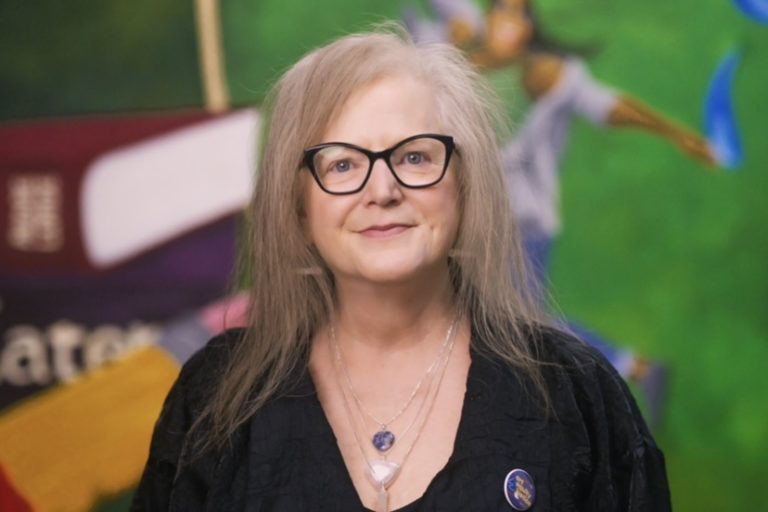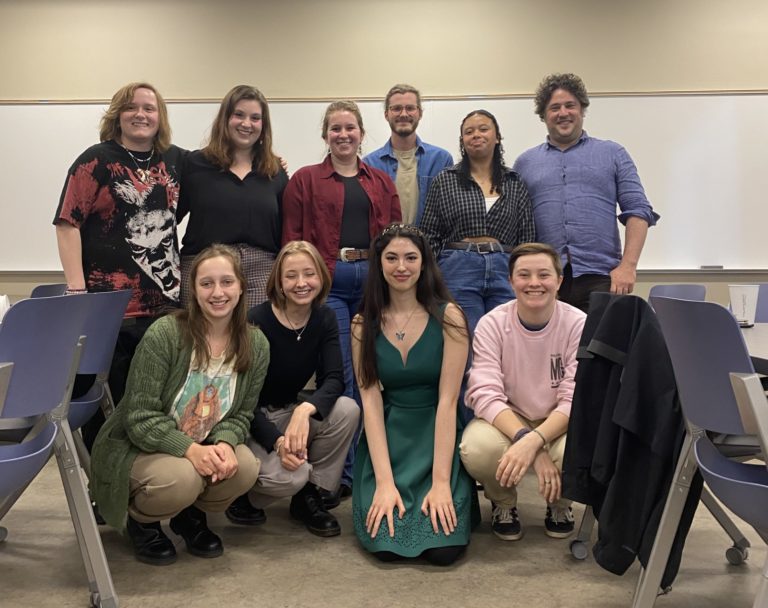As the inaugural Karen L. Gillmor Ph.D. Endowed Professor in Professional and Public Writing at Michigan State University, Kristin Arola, an innovative scholar and researcher, is not only teaching students persuasive and effective writing skills she also is showing them how to connect and make sense of their culture through their writing.
“To have been selected to serve in this position was so validating in the sense that Michigan State and a donor would see writing as important in its own right,” Arola said. “Often, we take writing as a given. We ask students to write a research paper and we forget that writing is a practice that doesn’t come naturally and needs to be taught.”
“To have been selected to serve in this position was so validating in the sense that Michigan State and a donor would see writing as important in its own right.”
Dr. Kristin Arola
The position, created in 2019 through the generosity of MSU graduate and former Ohio State Senator Karen Gillmor, supports student excellence in professional and public writing by recruiting and retaining outstanding faculty. Arola, an Associate Professor in the Department of Writing, Rhetoric, and American Cultures, transitioned into the role this year.
“I am thankful for Karen Gillmor’s recognition of the importance of writing and her contributions to Writing, Rhetoric, and American Cultures and to the College,” said Dànielle Nicole DeVoss, Chairperson of the Department of Writing, Rhetoric, and American Cultures. “Kristin is an exceptional faculty member — indeed, ideal — to honor and engage the goals of the endowed position.”
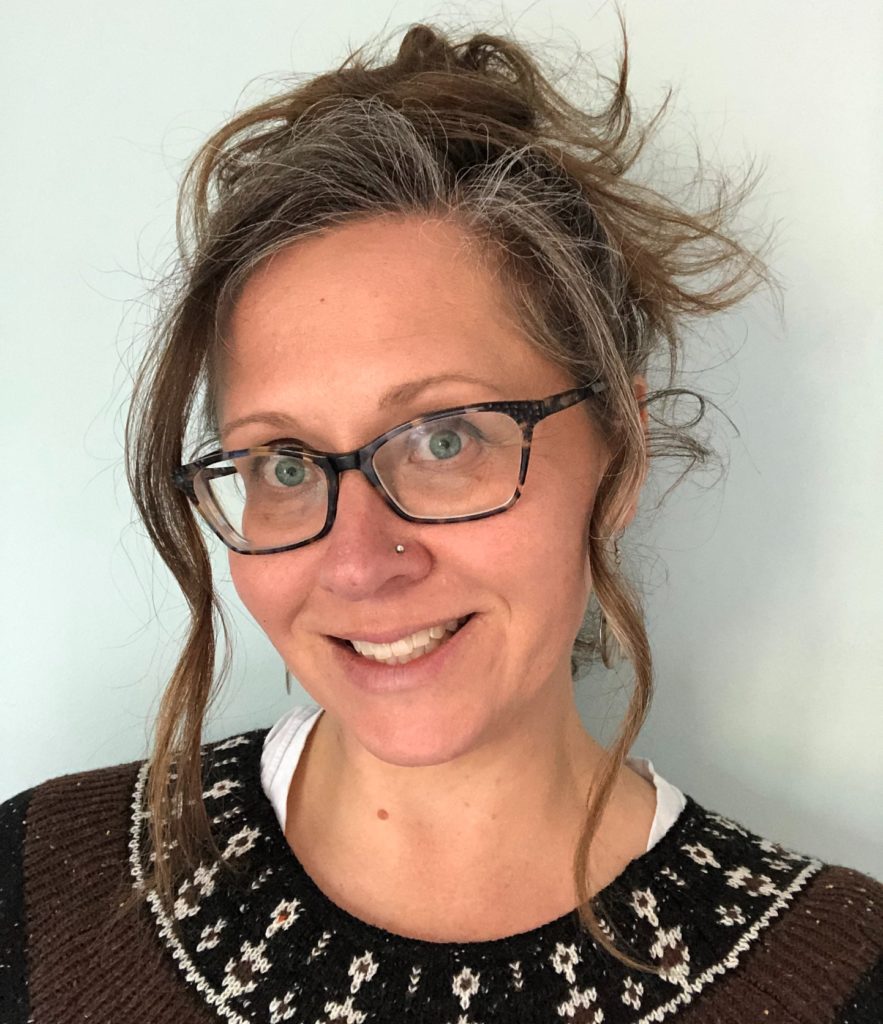
Arola also was recently appointed Interim Director of MSU’s American Indian and Indigenous Studies Program. Her research and teaching in composing as culture explores how the acts of writing, designing, and making — as well as the ways those skills are taught —cultures people into particular ways of being and sets of values. Her work brings together composition theory, making culture, and digital, environmental, and cultural rhetoric.
“One of the things I do in my research and teaching is to think about the ways that the cultures you’re steeped in shapes how you make meaning and how you are persuaded to do something, or effect change in the world,” she said. “For students who might think they don’t have a culture — that they simply come from the suburbs — I tell them they do and show how you can make sense of that culture to move people through writing.”
“Kristin is an exceptional faculty member — indeed, ideal — to honor and engage the goals of the endowed position.”
Dànielle Nicole DeVoss, Chairperson of the Department of Writing, Rhetoric, and American Cultures
Arola supports concepts through examples drawn from her own research, including a recent five-year study funded by the National Science Foundation (NSF) that worked to understand renewable energy transitions in rural communities and Tribal Nations in Michigan. Arola explained that among several findings, the cross-disciplinary project demonstrates how cultural, political, and economic context shapes a community’s point-of-view and their decision to adopt particular practices or not.
“Here, specifically, tribal communities and non-tribal communities were similar in wanting to adopt a renewable energy strategy, but their ‘why’ for adopting a practice was different,” Arola said. “With non-tribal communities, economic aspects were a very big focal point in their writing, where in tribal communities, the focus was on taking care of land, the community, and sovereignty. I want my students to see that if you’re part of a community, your writing and presentation will reflect that, and affect how you reach your end goal.”
Drawn to Write
Arola grew up in the small rural town of Dollar Bay in Michigan’s Keweenaw Peninsula. Her mom is a member of the Keweenaw Bay Indian Community and Lake Superior Band of Chippewa Indians. Her dad is Finnish American. She said that heritage, as well as the culture and physical surrounds of Michigan’s western Upper Peninsula, shaped how she approaches and does her work today.
“My mom was interested in storytelling and how her own culture shaped writing and meaning,” Arola said. “She actually started studying writing and eventually got her Ph.D. from Michigan Technological University when she was in her 50s.”
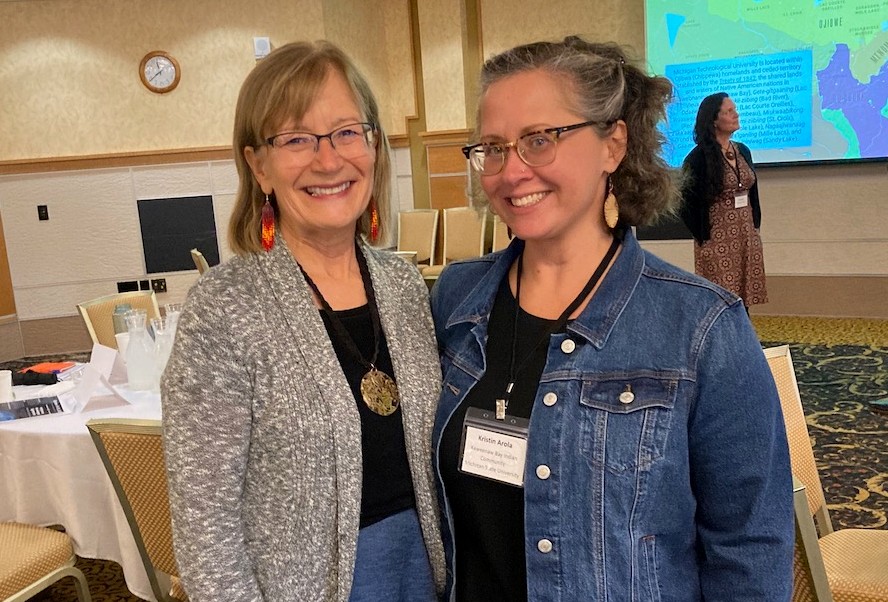
Arola said she always liked to write and was a voracious reader as a kid. She remembers writing chapter books and playing “library” a lot with her friends and younger brother.
While writing was her pastime, Arola didn’t set out to study the discipline in college. Instead, she majored in natural resources, influenced by her reverence for the land and land-based knowledge.
“I very quickly discovered that the coursework wasn’t speaking to me,” she said. “In talking to my mother, she asked which classes I liked best, and I told her my writing classes. She said, ‘why don’t you do that?’ So, I switched from being natural resources to an English major and took every writing class I could, particularly non-fiction and persuasive writing.”
Culture as Persuasion
Arola earned her bachelor’s in English from the University of Michigan, and her master’s and Ph.D. in Rhetoric and Technical Communication from Michigan Tech. Earning her advanced degree closer to home was extra enticing, she said, as being close to her family was important. Her mom also attended MTU at the same time and earned her undergraduate degree when Arola received her master’s.
After completing her Ph.D. in 2006, Arola moved across the country to teach, research, and lead at Washington State University. Over a span of 11 years, she served as both an Assistant and later an Associate Professor of English-Rhetoric, Composition, and Technology. She also was the Director of the university’s Digital Technology and Culture Program and Director of Graduate Studies for the English Department.
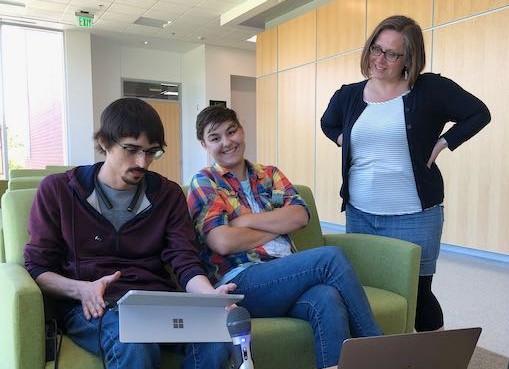
In 2017, Arola joined the faculty of MSU’s Department of Writing, Rhetoric and American Cultures. The stand-alone characteristic of the department, she said, provided her space as a writing scholar, something she said that’s not always possible when a writing program is embedded in a larger department.
“Having the opportunity to be in a stand-alone writing program that was also focused on culture was extremely attractive to me as I’ve always connected writing with culture,” she said. “We never write in a vacuum and are always interpreting our world through culture.”
Defining the Role
Arola continually looks ahead to combining aspects of her research and teaching, and to the opportunities afforded by the Gillmor endowment. This spring, for instance, she will facilitate a small virtual symposium of cross-disciplinary professionals to reflect on how writing and persuasion is important to their work in marketing, fundraising, community outreach, and politics.
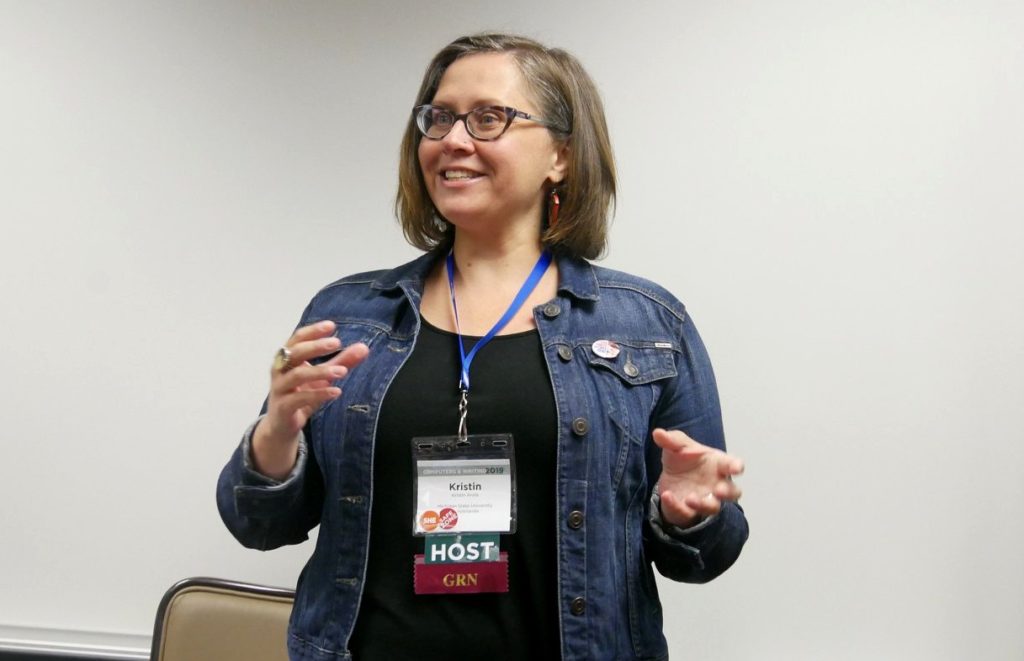
The endowed professorship, as well as MSU’s recent creation of a professional and public writing minor, validates her belief that the university and the College of Arts & Letters are firmly committed to the discipline, as well as to the effects of culture on writing and persuasion. Her role, she said, is to highlight the value of professional and public writing as an educational mission and as a skill important to the world.
“I’m proud to be a member of a department that offers a minor, bachelor’s, and graduate programs in public and professional writing,” she said. “Having grown up in Michigan, and now teaching here at MSU, makes me feel that I am serving the communities I know and am a part of.”
